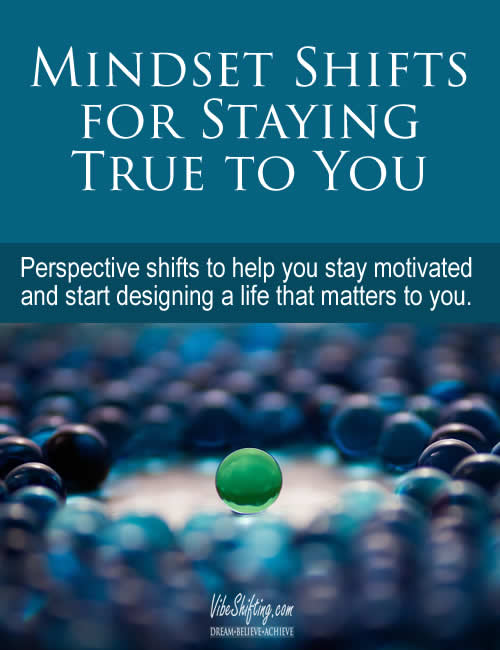 Hello and welcome back everyone! If you missed last week’s episode, we were talking with Lisa Somers of the Mindstein System about the danger of potential and getting too hung up on other people’s opinions when it comes to living your life and building your dreams. Today I’ve got part two of that interview for you, in which we discuss overhelm, real motivators, and the importance of staying true to yourself.
Hello and welcome back everyone! If you missed last week’s episode, we were talking with Lisa Somers of the Mindstein System about the danger of potential and getting too hung up on other people’s opinions when it comes to living your life and building your dreams. Today I’ve got part two of that interview for you, in which we discuss overhelm, real motivators, and the importance of staying true to yourself.
This Expert Series Guest Interview Has Two Parts:
1708 Potential and the Entrepreneurial Mindset
1709 Mindset Shifts for Staying True to You
[powerpress]
Show Notes: Mindset Shifts for Staying True to You
Lisa: My whole business is all about reducing overwhelm for entrepreneurs. It’s about not burning your personal life to the ground for the sake of having a business. That’s what I do.
And so the number one reason everyone is overwhelmed is because they’re trying to follow every piece of information in every direction and they have no clue what they actually want to do or what feels right to them. They’re just following blindly and they’re working themselves up by saying “this person said that I have to send out three emails every day.”
And they’re getting so caught up now and then what happens is when, if you have a day where you can’t keep up, or you have a week where you can’t keep up. Like last week I was sick and I had to just stop everything because I wasn’t well. And I said “OK I can keep going on here and I’ll probably be done for a month, or I can take this week and come back stronger next week.” And that’s what I did. But what a lot of people do is they refused to take a break.
Nathalie: Yeah.
The “Exclusive Solution” Problem
Lisa: Because they’re so focused on this potential they have, this success they want to reach, this goal. And the problem there is that they have this thing in their heads about this exclusive solution. And the exclusive solution is out we just feel like there’s only one way we can possibly go to achieve what we want.
There’s more than one way to get to where you want to be. #ManyPaths #success Click To TweetAnd this goes back to the social media platforms a little bit, I guess, in terms of, you know, someone says you need to do Facebook. OK. So you then decide that Facebook is the only way you can have a successful business and build your audience.
And so you get so caught up in that. And then if you don’t like it or it’s not going well, you begin to feel inadequate, you start to feel like you’re just not good enough.
Focus on Progress, Not Outcome
Nathalie: You start beating yourself up and feel like giving up
Lisa: You feel worthless. You watch all the other people and all the other groups posting content, posting freebies, and you sit there and you go “I can’t do this. I can’t run a business. How am I going to do this? If only I had more time, if only I had more resources.”
Nathalie: If only I had a full-time nanny, a chef, and a personal trainer…
Lisa: Exactly. And this is because you’re focused on reaching the outcome instead of on making progress. That is why. And the reason as well if because you’re focused on an exclusive solution, you believe there is only one way. But there are actually thousands of ways. But what has happened is that you’re so caught up and you’re so focused.
Nathalie: You have blinders on and you can’t see the other avenues.
Design Your Life Like You’re Designing a Product
Lisa: Yeah. You can’t. You have tunnel vision completely and you can’t see. And a cool exercise that I actually heard, I think it was Dave Evans, he’s a psychologist, I heard it on a podcast recently. The podcast, I think it was Hidden Brain, I think it was on. And he was talking about design thinking, and so he was saying that you should design your life like you’re designing a product.
And that means that if something’s not working, you take it back, you review, and you do another iteration. And you put that into the world and if that doesn’t work, then and you take it back, and you review, and you do another iteration. There’s not one solution that’s gonna fix all your problems or make you a successful business owner.
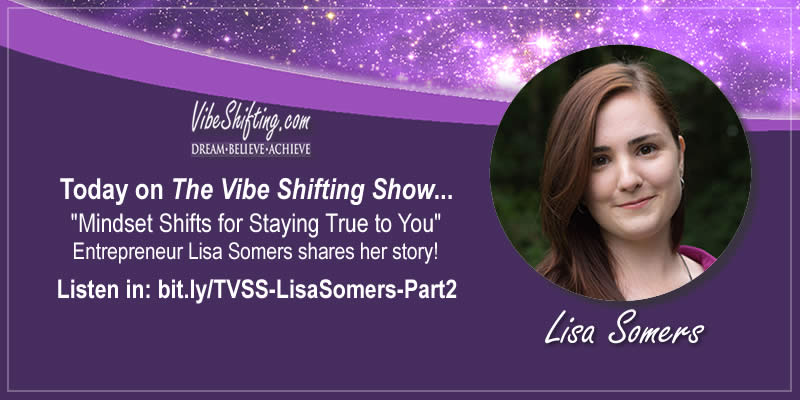
Fear of Failure
Nathalie: It’s like that kids book. Ashley Spires did this children’s book, it was an illustrated children’s book called The Most Magnificent Thing. I talked about this way, way, way back. My first book was about fear and overcoming fear. And one of the biggest fears that people have is this fear of failure.
Lisa: Yeah.
Nathalie: And so often we just won’t start something because we’re afraid we’re going to fail if we do. But what I loved about this book, especially for helping children to change the way they think about failure, is that she went through just what you were saying. She went through all these iterations. She tried something it failed. She tried another thing and it failed. She tried another thing and she failed.
And at one point she was so frustrated she gave up in disgust and ended up taking a walk around the block with her little sidekick dog. And as she’s coming back to where she started she’s walking down the sidewalk and all these little machines that she created, that she was trying to create her most magnificent thing.
Success Comes After Failure
But all her failures were lined up on the sidewalk and as she’s walking by them, she’s thinking “Oh wait a minute. Well that piece of that one could work with that and it could work with this piece of that one. And if I put those three things together with that piece from that one…”
And so from all her little bits of failures, she was able to take elements that she could then combine to create her most magnificent thing. Which ended up being completely different from what she’d originally envisioned but was exactly what she wanted.
Design your life like you’re designing a product: think in terms of iterations! #process #success Click To TweetExercise: 3 Variations of Your Life
Lisa: Yeah exactly. And that sums it up so well. And with this whole potential thing, it’s the same as that book. She had the potential to make this most magnificent thing. And she got caught up in that. And then she actually realized along the way that there are more than one way to make to make this happen.
And so the exercise that I was talking about, it was to do three different variations of your life. So, to write down three different variations. And so for me that I’d be, number one might be running this business successfully and doing that and having a nice family, and a nice house and all of those things. Number two could be I just give it all up and I go and play music. And that’s what I do with my life, as a career. And number three and might be that I just go and I get a job that I love and I do that instead.
Lisa: And so what that allows you to do is then you can pick, obviously I’m choosing to run my own business, that’s what I want to do. I know now that I’m choosing that because I have other options. And so…
Nathalie: That’s brilliant. I really like that strategy.
Taking Responsibility For Your Own Life
Lisa: It’s good because then it opens up, it frees you to take action on what you want to do. And it also forces you to take responsibility for your own life. And that’s something that’s so important because a lot of us will say, okay I want to run a successful business. But then we don’t implement what we need to implement to get that going. And we sort of get stuck.
And with this exercise, if you can write out, and do it in detail, exactly what you want from your life in three different lives. If you were able to have three lives, what would they look like? And then you know that the life you have right now is the life that you’re choosing.
If You’re Choosing It, You Can Change It
Lisa: And therefore, if there’s something in that life that you don’t like, if you’re in a bad or an abusive relationship or you know you hate the house you live in and you can afford to move but you just can’t be bothered because it’s effort and change is painful, then you know that you’re choosing that. And it you’re choosing it, you can change it.
So it’s quite empowering to look at it that way and that way, as well, you’re still living up to your own potential. You’re not focussed on anyone else. Because nobody else knows what your life could look like. You only know that because you know exactly what you’re good at, exactly what you could do, and exactly what you want. And so if you can free yourself to think that way, it gives you multiple options to, number one, change and, number two, if you want to stay the same then you know that you’re choosing that life.
Nathalie: I really like that. I’m going to have to give that a try.
Happy With Your Choices
Lisa: It’s good fun. It’s kind of a surprising one because you would think that, when you do it, you would kind of feel like you’re missing out on things. Because I love playing music. And so when I wrote down I want to be a musician and I want to sing all over the world and all of that stuff.
And then I kind of went, but you know I love running my business. That’s what I want to do right now. That’s the life I’m choosing right now. And it didn’t make me feel any less, it didn’t make me feel like I was kind of inadequate because I didn’t go and make a career as a singer happen. It just said to me that, you know what? It’s really cool because now I know that I could have done that. But I’m really happy with the choice I made.
You Can Always Make a New Choice
Nathalie: You know what else I think it could help you with, though, is that concept of this is what I chose and therefore that is what I will have to choose for the rest of my life. I think that’s something that messes a lot of people up, as well, because we’re free to make choices and commit to something because we’re afraid that, by committing to this particular path, we are automatically shutting down all the other possibilities. And I don’t think that’s the case.
You may decide that, for right now, running this business of yours is what you want to do. For now this is what it is that is your thing. But ten years from now, that may change. Ten years from now, and especially with music opening up to… It used to be, I was told once that if I hadn’t made it in music by the time I was 26, I was toast. It just wasn’t possible.
Lisa: Yeah.
Paths Can Change
Nathalie: But I think that’s changed now especially with being greater avenues to get into something like music online. So I think that if in 10 years from now you decide OK I’ve done this business thing and I’m happy with what I’ve done. Now it’s time to focus on the music. So you could still do that. And I think what people forget is that they can change. And they are supposed to change. You’re supposed to change as an individual, as a human being. You are supposed to grow and develop and evolve as a person.
So the path that you have committed to now, the path that you’re on now may branch, it may swerve, it may change in five years, in ten years. You don’t know that now. So, by saying yes to something now does not mean you are saying no to all those other possibilities for all of eternity. And I think that messes up a lot of people because they think saying no now means no forever.
Problems vs Circumstances
Lisa: Yeah, and I think this is a real thing that comes up with problems that we’re trying to solve. Or we’re trying to make these big life decisions.
And another helpful thing to think about here is, is this an actual problem or is it a circumstance? And what I mean by that is a problem would be, I don’t have enough… I don’t know, we’ll use social media because we’ve been been talking a lot, so it makes sense, but I don’t have enough people in my group to engage with, to create content for. I want more people in my group. That’s a problem because it’s something you can take action on and it’s something you can figure out and get a result from.
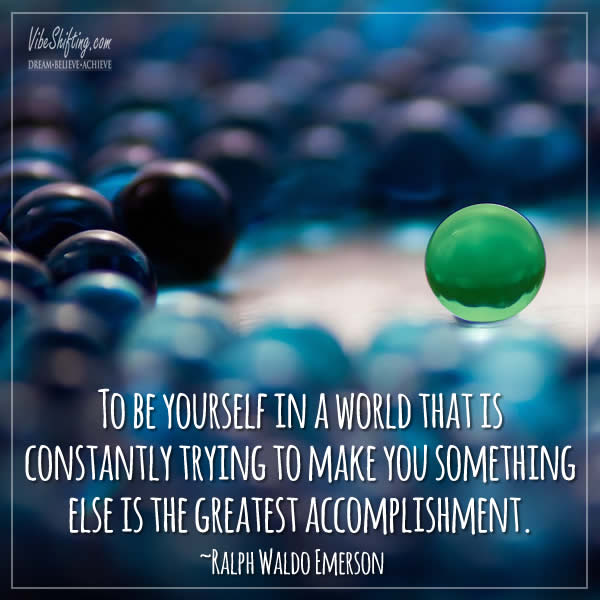
An Example of a “Circumstance”
A circumstance is like, okay I am now 65 years old. I want to be an Olympic gymnast but I’ve never, ever done gymnastics in my life. And so that’s going to be pretty difficult for you because you’re going to have no flexibility, you’re not going to have any previous coaching, you’re not going to have that ability and that is a circumstance.
That’s something that, if you could just put that aside and focus on the things you are good at and the talents that you have, the strengths that you do have, those are problems you can solve. Whereas circumstances are what we get caught up in a lot.
Don’t Confuse Problems and Circumstances
So we say I don’t have enough money. And we think of that as a circumstance when actually that’s a problem. And so we mix these two up all the time which results in us just ending up feeling like we can’t do anything, when actually we can.
And vice versa, as well. If there’s nothing you can do, what’s the point in spending years or months or whatever just sitting and wallowing in that when there are a million other things you could be doing with your time that will move you forward in life.
Clarifying the Concept of Circumstances
Nathalie: I’m not sure that I would agree that giving up on being a gymnast at 65 is something that you need to do because I think you have to look at what it is that you’re trying to do, you’re not going to be an Olympic athlete at 65 if you’ve never done it before. But, at 65 most people probably aren’t all that caught up in the medals and stuff anymore.
It’s more about “I’m 65 and always wanted to be a gymnast when I was as a kid but I was never able to, but I have the time now. And even if I’ve never done this before I can start taking yoga and working on my flexibility. I can start working with somebody to help me learn how to do the gymnastics. I can be a gymnast at 65, starting from zero, even if I never get to the Olympics. I can prove to myself that I can do this.”
Reframing Circumstances as Problems to Be Solved
Lisa: Yeah exactly. That’s actually exactly what I mean. Maybe I phrased that kind of wrongly. But what I was saying is you’re not going to make it to the Olympics. Well you could, but it would be highly unlikely. And so, what I mean is that there are probably things in life that you would be focusing on, and that could be “I want to do yoga and I want to become more flexible”.
Because that’s a problem you can solve. But what I was saying is, just the circumstance is you’re never going to compete at the same level as a 21 year old who’s been training in gymnastics since they were three. Well maybe you could, but it would be very, very difficult and highly unlikely.
Get Clear on Your Motivation
Lisa: But you can still do things. You could still become a gymnast. You could still go train. You could still do yoga. You could still become more flexible. But the circumstance that you have found yourself in, the fact is you’re 65. And the fact is you’ve never, ever done gymnastics before. So to spend your whole time and your whole day focusing on that is, perhaps, not the best use of your time.
And now, maybe people would disagree, but I feel like if it’s not been important to you your whole life, there are probably other things are more important to you. But if that’s what you want to do with your life then, cool, that’s great. But a lot of people spend their time… my point is a lot of people spend their time focused on things that are going to be pretty much impossible. And they’re doing it because it comes from a point of pain.
Stop focusing on what you CAN’T do, and think about what you CAN do, right now. #mindset Click To TweetSo I want to be… I want to do this because other people told me I’d never do it, or whatever. And you get caught up in that. When really there are other things that maybe you want to do with your life that you’re not even focused on anymore because you get caught up in this other stuff. I think that’s what I was trying to say. Maybe I didn’t phrase that as well as I should, but hopefully that cleared up a little bit.
What Can You Do Right Now?
Nathalie: So rather than just focusing on regret and what could have been, focusing on what you can do now, from this point. Forget about all the crap that happened before. What I want from here is this.
Lisa: Exactly.
Nathalie: What can I do in the now to start working towards that? Without getting caught up in all the baggage and stuff.
Lisa: Exactly. Yeah. And then this allows you not to get caught up in the “Okay, I’m not good enough. I’m never going to be good enough. Oh, my life is terrible.” And you said to say all these things…
Nathalie: Oh, yeah, yeah. No. You can’t do that to yourself. Bad, bad, bad things happen when you start doing that.
The Cycle of Wallowing
Lisa: Exactly. And it’s just this horrible cycle. And we’ve all been there at some time or another where we just sit and wallow, and “oh, I wish things were different” and whatever.
If it’s a problem it’s actionable. And that’s what I’m really trying to emphasize, is that if it’s a problem you can take action on it. And then at least you can say, OK, well I did my best to resolve this, to move forward.
Some things can’t be solved, you know. Some things are just the way they are. And that’s okay. And to just accept that. And the main thing is that in the midst of all that, in the midst of all the problems, all the circumstances you find yourself in, you just need to know that everything you’re doing is because it’s for you.
You’re staying true to who you are, as opposed to who other people want you to be, the potential you had when you were a little kid and everyone said to you, “oh, you’re going to be this” or “you’re going to be a great whatever”. You’re doing it not because of all that, but because you’re taking responsibility for your life. You’re mindful of what you’re doing. And you’re always moving forward for yourself, and not for everyone else around you.
Staying True to You Helps You Through the Bad Days
And I think that’s the critical part. Because then when you have a bad day. When you have those days that you just feel awful or like things aren’t going well. I had a day like this myself recently where I actually did a livestream. And whatever happened, there was no one on at the start of my livestream. And usually there’s people on at the very start and so I know everything’s working and everything’s okay.
And as I went on in the livestream, I became really caught up in this. And I kind of went, “oh, maybe no one’s interested in what I have to say today. Or maybe this topic is really boring and no one cares. Maybe I should just stop now.” You know, I’m mid livestream and saying all this to myself.
You’re Doing it For You
I realized about halfway through that I probably look miserable because I’m just so busy thinking about what all these imaginary people think of me. And then I’m like, you know what? Just do the livestream. Because it doesn’t matter. You’re doing it for you. And I was, like, right. OK. I’m gonna do the livestream.
And I did the livestream, and that was fine. I still wasn’t feeling great about it, and I kind of said “oh, I wish hadn’t have been so distracted”. And I was really beating myself up. And then about 10 minutes later a lady commented on the page and said this is actually your best one yet. This really resonated with me so much, and thank you. And I just was completely blown away because I thought it was awful.
It’s Not You – People Are Just Busy
So the thing there was, if I had went with what I was feeling that time I would have probably just switched off my camera and went “Oh, do you know what? No one’s watching anyway. It’s fine. I’ll just turn it off and do it another day.” But instead I stuck with it because my whole thing is I want to help other people reduce their overwhelm. I want them to get their personal lives back on track.
And so I said “You know what? Even if I’m feeling this is going terrible, I’m just going to keep going.” And it wasn’t terrible. It was just me getting in my own head and telling myself that people didn’t like it just because they weren’t on. But, you know, people have lives. They’re busy.
Nathalie: Yeah.
Doing it For a Reason
Lisa: So it’s just this thing. But if you can have that motivation, like I had, that I could pull myself out of it because I said “you’re doing this for you”. You shouldn’t care if anyone is on because there are going to be times when no one’s watching.
There are going to be times when it doesn’t resonate with other people. But if you’re consistent and you know that you’re doing it for a reason and that reason is based on you and not other people, it’s much easier to keep going even when you’re having those terrible days and you don’t feel like you’re doing it right.
What Are Your Touchstones?
Nathalie: That’s so true. Just being able to be… something I talk about is being in contact with your touchstones, so that “why” that we talked about at the beginning, that underlying “why” that connects you to the core of what it is that you’re doing.
And I think that’s probably one of the most critical things about all the stuff that we’ve been talking about today is understanding the reason why you’re doing what you’re doing. The reason you’re trying to build this thing that you’re trying to build.
And when you’re staying, when you’re in contact with that, when you really know that “why”, then you’re able to get through all those scary and down-turning things that make you question yourself, if you know why you’re doing what you’re doing then, it’s easier to get through all of that stuff.
What’s the Real Why?
Lisa: And that why, just to say this, because I think a lot of people miss that. So, the why has to be really specific. Because of it’s not specific, it’s not going to work. So, you hear a lot of… weight loss is a great example to use, because a lot of people try lose weight and they don’t, and they put it back on and whatever.
And so with weight loss, a lot of people say “I want to lose weight so I can look good. Right? And that’s their why. But that’s really their why, but they haven’t actually connected to it so therefore it’s not going to work. They’re focused on this kind of reason that everybody else has, or it’s the reason in the media like “look good on your summer vacation.”
Nathalie: You have to get to the underlying reason. Underneath all that surface stuff.
Real Reasons Are the Ones You Don’t Want to Share
Lisa: And that underlying reason might be “OK. I want to be able to play with my kids in the park for half an hour and not feel like I’m gonna collapse.” It might be “I want to be able to feel comfortable naked in front of my partner” Because those are the reasons. It’s not because you want to look good, it’s because you feel awful. It’s the horrible reason that is embarrassing, that you don’t want to share with anyone, and that’s cool, you know.
Because those are all our reasons for doing things, are the ones that we don’t feel comfortable sharing because those are the ones that are actually going to make you change. And it’s… you can connect to those reasons as opposed to this kind of superficial reason that you’ll tell other people. Or “oh I want to be healthy.”
OK, but actually what you’re saying is you don’t want to have a heart attack before you’re 50 and not be able to be there for your kids. And that’s the difference.
Figure out what your REAL #motivation is, and the rest will be easier. #success Click To TweetThe Key to Motivation
Lisa: And if you can connect to those reasons, you are far more likely to succeed. And you’re also gaining a better understanding of yourself. And maybe you might realize that you’re actually really afraid.
And that’s something that a lot of people don’t connect with, that they’re petrified of change, they’re petrified of staying the same. Because that’s not comfortable, they’re hearing all these things about, if you don’t lose weight this is going to happen, or whatever. And they get locked into this fear cycle.
And as we know, a lot of the time if we’re afraid we just freeze and we don’t do anything. Or we run away from the problem. And so if you can connect with a why that transcends all of that, that it’s a really, really deep reason, that is how you’re going to change. That is how you’re going to break these behavioural patterns, these thought patterns that you’ve had for years and that these programs online they haven’t been able to help you with because they’re only working at that superficial level.
And that’s really the key to motivation, I would say, is to actually understand your why, not just “understand it”, inverted commas.
Know Your Own Why, Don’t Adopt Someone Else’s
Nathalie: It’s about understanding your why, not adopting somebody else’s why because it’s not going to be the same as somebody else’s.
Lisa: Exactly.
Nathalie: You have to know what matters to you, specifically.
Lisa: Yes.
Nathalie: This has been really, really awesome, Lisa. Thank you so much for being here.
Lisa: Thank you. I really, really enjoyed our chat. It was great.
Nathalie: We’ve been talking today with Lisa Somers of the Mindstein System. And I will be putting the links for Lisa’s Web site and her social media contacts on the notes for today’s show so you can connect with her online and learn more about what she does about helping you solve your overwhelm problems.
 About Today’s Guest Expert:
About Today’s Guest Expert:
Lisa Somers is a human behaviour geek, and founder of the Mindstein System. As a psychology graduate, Lisa began working with financially successful entrepreneurs and began helping them to reduce overwhelm and stop burning bridges in their personal lives through proven psychological principles. She has helped many entrepreneurs to get their personal lives back on track, and unleash even more incredible results in their business empires. Lisa lives with her partner, and her border collie, Jackson in the South East of Ireland. She is also an avid reader, and could talk all day long about Stephen King books. You can connect with Lisa through her Facebook group or over on Instagram!
Photo credit: pixabay.com cc (modified by me)











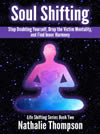

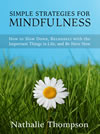




This is great!
Glad you liked it. 🙂